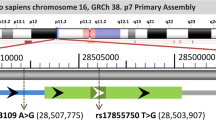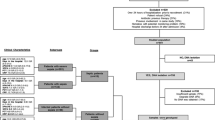Abstract
Host immune responses strongly control the outcome of infectious disease, and the resistance to bacterial infections in humans is in part genetically determined. Responses to Gram-negative bacterial endotoxin are affected by the concentration of plasma lipoproteins and lipid transport proteins that are genetically controlled. Alterations of plasma lipid profiles by genetic manipulation in mice indeed strongly modify resistance to bacterial infections. Recently, the TLR-4 receptor has been identified as the endotoxin receptor, and TLR-4 mutations are the cause of endotoxin resistance in mice. It is probable that such defects also exist in humans, although they must be rare. The capacity of monocytes to produce TNFα varies more than tenfold, and several polymorphisms within the TNFα gene have been associated with increased TNFα production and increased mortality of sepsis. However, these associations most likely result from linkage disequilibrium with other immune response genes on chromosome 6. Polymorphisms within the IL-1β and the IL-1RA genes (located on chromosome 2) are associated with altered protein production rates, and certain haplotypes have been linked to inflammatory disease (no studies in bacterial infectious disease have been published). Mutations in the receptors for IL-12 and IFNγ, both critical for clearance of intracellular infectious pathogens, occur in consanguineous populations and are associated with severe recurrent infections with Salmonella species and mycobacteria.¶In conclusion, no human cytokine deficiency syndromes are known, and it remains uncertain whether genetically determined differences in the production rate of pro-inflammatory cytokines alter the outcome of sepsis. In contrast, mutations in the IL-12 and IFNγ receptor (and possibly the endotoxin receptor) genes are associated with recurrent bacterial infections, whereas TNFR1 mutations cause fever of unknown origin.
Similar content being viewed by others
Author information
Authors and Affiliations
Rights and permissions
About this article
Cite this article
van Deventer, S. Cytokine and cytokine receptor polymorphisms in infectious disease. Intensive Care Med 26 (Suppl 1), S098–S102 (2000). https://doi.org/10.1007/s001340051125
Issue Date:
DOI: https://doi.org/10.1007/s001340051125




